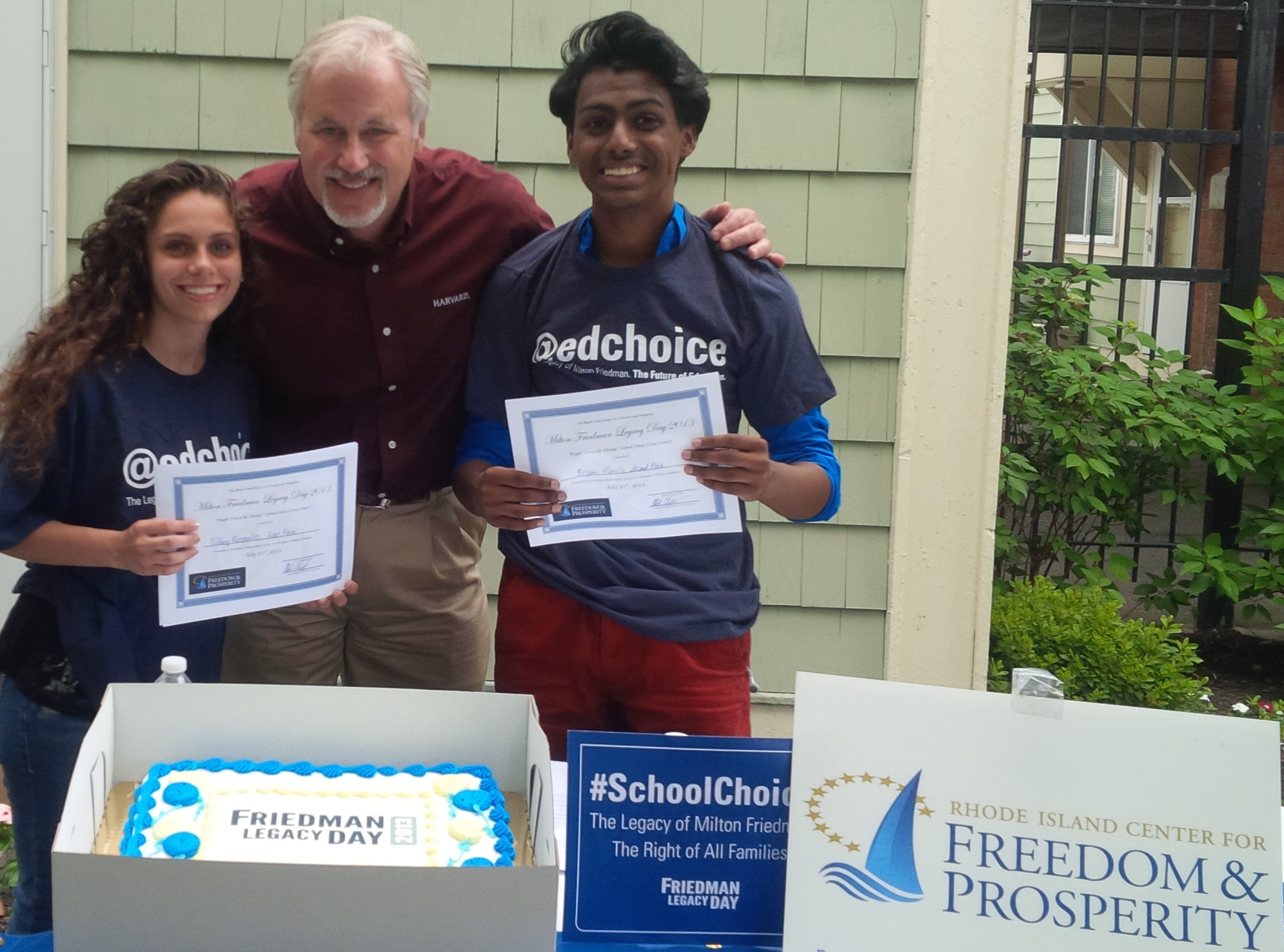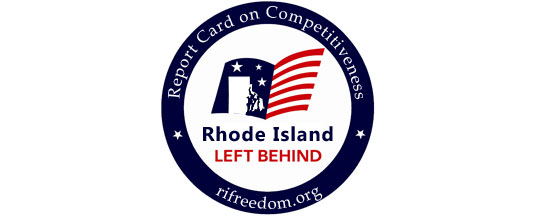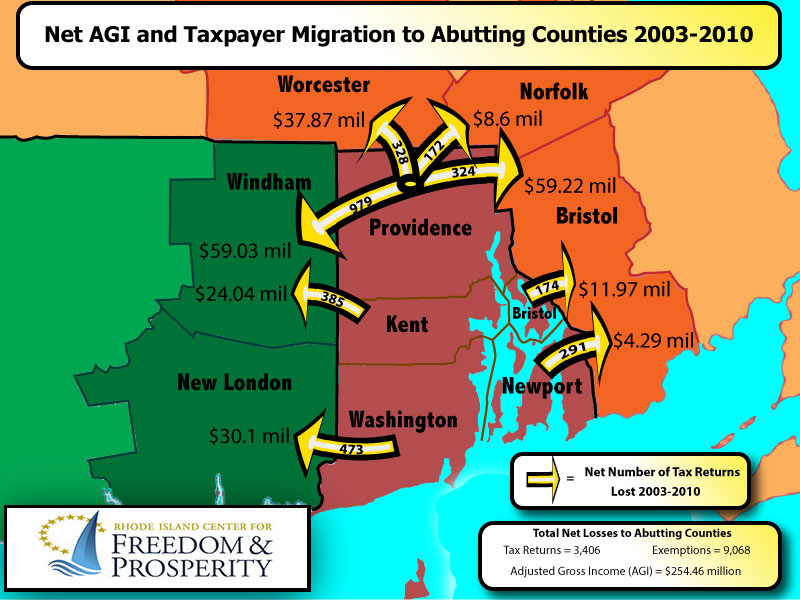Go to: CLOSING THE GAP Home Page
Testimony of Giovanni D. Cicione, Esq., Senor Policy Advisor, to The Board of Regents of Elementary and Secondary Education. Preview of CLOSING THE GAP education study released on January 9. The RI Center for Freedom & Prosperity submitted written testimony to the Board of Regents at their January 5 meeting regarding elementary and secondary eduacation. Giovanni Cicione, senior policy advisor to the Center, expects to be able to testify verbally at the next meeting of the Regents on Janauary 19.
The full testimony (below), also served as a preview of a major study the Center for Freedom, entitled, Closing The Gap. Visit the Closing The Gap home page here.
***
Testimony of Giovanni D. Cicione, Esq., Senor Policy Advisor, Rhode Island Center for Freedom & Prosperity
To The Board of Regents of Elementary and Secondary Education (submitted January 5, 2012)
Good Afternoon. My name is Giovanni Cicione and I am the Senior Policy Advisor for the Rhode Island Center for Freedom & Prosperity. The Center is a nonprofit, nonpartisan organization, dedicated to providing concerned citizens, the media, and public officials with policy research and data, and advancing free-market solutions to public policy issues in the state.
Or intent in coming before you today was not specifically to weigh in on the debate regarding Achievement First. Rather, we intended to preview and share a study we will be releasing next week entitled “Closing the Gap.” This study, which I will reference n more detail in a moment, looks at reforms made in the state of Florida over 10 years ago that led to dramatic gains in educational achievement for some of the most challenged student populations in that state.
What is interesting from the perspective of today’s debate, is that much of the success in Florida over the last decade can be directly tied to the type of approaches advocated by Achievement First and similar organizations. And while I’m sure you will hear many criticisms of the mayoral academy model from the special interests who oppose these reforms, what our study demonstrates is that when these and other related reforms are put in place not only do you see overall gains, but that those gains are strongest amongst those students who are the most disadvantaged.
Non-English speakers, students who rely on free or reduced lunch support, and students with disabilities saw the most dramatic gains under the Florida reform model.
Our study will provide more detail and specific data when it’s released next week, but I’d like to highlight the key findings and recommendations.
Closing the Gap shows, for example, that Florida’s fourth-grade Hispanic students have improved so dramatically that they now perform at the same achievement as the average for all Rhode Island fourth-graders. Both states started out equally far behind, but Rhode Island students’ average score has improved by only (5) points since 1998, while Florida’s Hispanic students have improved by (25) points; equivalent to two-and-a-half grade levels’ of progress.
Imagine the impact if we had taken the same route ten years ago, when our own Hispanic children now preparing to graduate were just starting their grade school careers. Hispanics are the largest minority group in Rhode Island and represent 11 percent of the total population and 19 percent of the public school population. Unfortunately, Rhode Island Hispanic students have among the lowest (NAEP) scores in the nation in both math and reading. Closing the Gap shows the way to improve this ranking.
Closing the Gap cites reforms in evaluations and accountability for teachers and schools in the areas of transparency and parental choice. The study documents how the latest NAEP results strengthen the argument that Florida-style reforms should be considered for Rhode Island.
Closing the Gap explains in some detail why Florida’s reforms, while benefiting all students, have been especially beneficial to disadvantaged students. The study details the key components of Florida’s K-12 education reform strategy and makes specific policy recommendations that will provide more young Rhode Islanders with an opportunity to succeed in school and enhance their chance of pursuing and achieving their dreams.
Florida’s reform model includes:
• Public-school choice for students in low-performing public schools.
• Private-school choice for students with special-needs.
• An open door for new charter schools.
• Selective and effective se of virtual education.
• Performance pay to reward teachers who achieve student gains.
• Alternative teacher certification.
• A through F grading of all public schools; and
• A ban on social promotion.
These reforms were passed by a bi-partisan group of political leaders who faced many of the same criticisms you will hear today. They did it without empirical evidence that it would work, but they also new that to do nothing would be to condemn students to failure.
Your choice is a much easier one. I’d like to ask you to consider something – think for a moment about what you will say to a first grade student today who comes back here in a dozen years if you don’t adopt these types of reforms? What will you tell that student who asks why she is graduating with a 9th grade education after twelve years of instruction? Today you could perhaps claim that you didn’t’ know if the reforms would work, but Florida has shown us that they do – we cannot plead ignorance or even uncertainty when that child stands before you.
Why does Rhode Island suffer from the largest achievement gap among Hispanic students and other with unique challenges? Is it failing schools, a lack of funding, or is it something much worse … the soft bigotry of low expectations?
The Rhode Island Center for Freedom & Prosperity believes that every student can succeed, and that the only true disadvantage or disability is a rigid and moribund system that stacks the deck against them.
Thank you for the opportunity to be here today.
***





